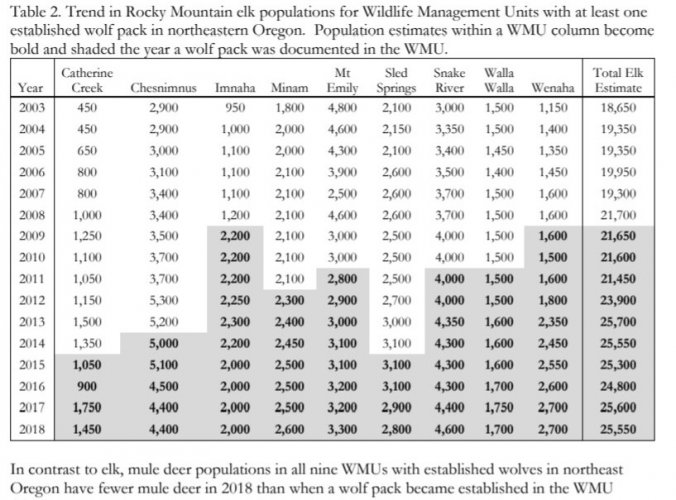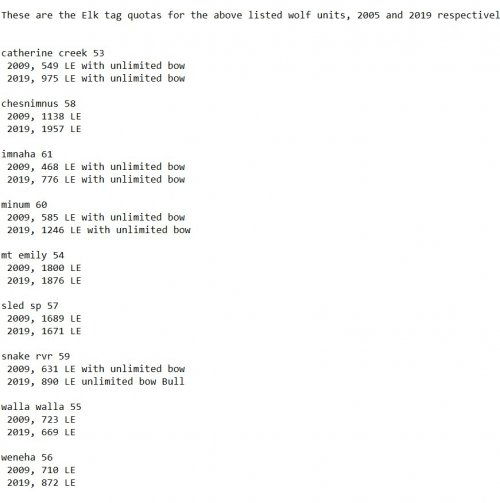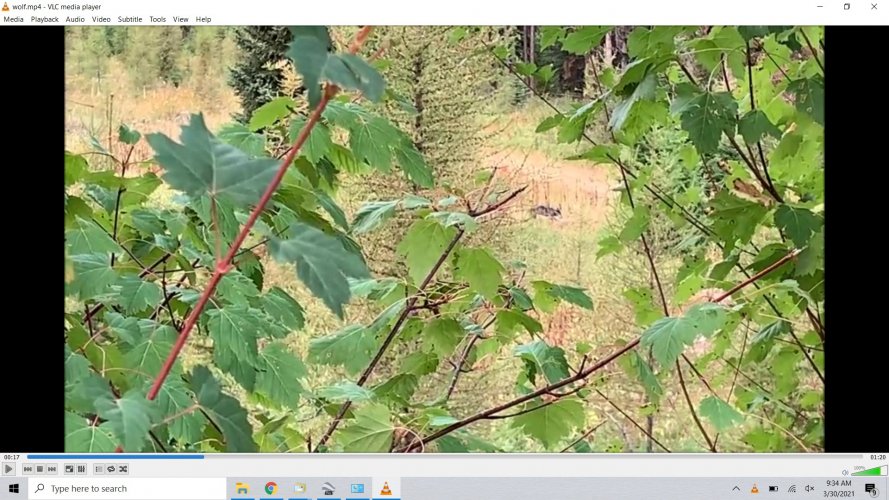Carnage2011
Well-known member
I’m not very well versed in Idaho, but in MT we see similar statistics used and they aren’t exactly indicative of wolf impacts on elk.Idaho Fish and Game data
1995 elk population : 112,333
2017 elk population : 116,800
1995 elk harvest : 22,400
2017 elk harvest : 22,751
1995 wolf reintroduction
2020 wolf population 1,500+
Deciding what information to provide others matters. Elk behavior has been affected, population in some units have been affected negatively, big picture looks good with some of the highest numbers of elk harvested in state history in recent years. 2020 elk population was estimated to be at 120,000 so the statewide elk population appears to be growing as well.

Idaho wolf populations remains stable between 2019 and 2020 despite higher mortality
The 2020 estimate was 1,556 wolves, 10 fewer than the 2019 estimate of 1,566. The estimates are made in August at a time of the year when the wolf population is near its annual maximum.idfg.idaho.gov
Montana’s elk population is higher now than it was at wolf introduction, but that’s not apples to apples. Since then the elk numbers in regions 1,2, and part of 3 have dramatically decreased but units 4,5,6,and 7 have exploded. I’m not saying wolves are the only reason numbers have dropped in 1,2, and 3 (that’s a combo of wolves, bears, and liberal season dates) but wolves definitely have an impact. Region 1 has a shitload of predators and it’s elk/deer are struggling because of that.
I’m not sure what your experience is in MT, but for reference, regions1,2,3 are mostly public and 4,5,6,7 are more open country private land units typically.









